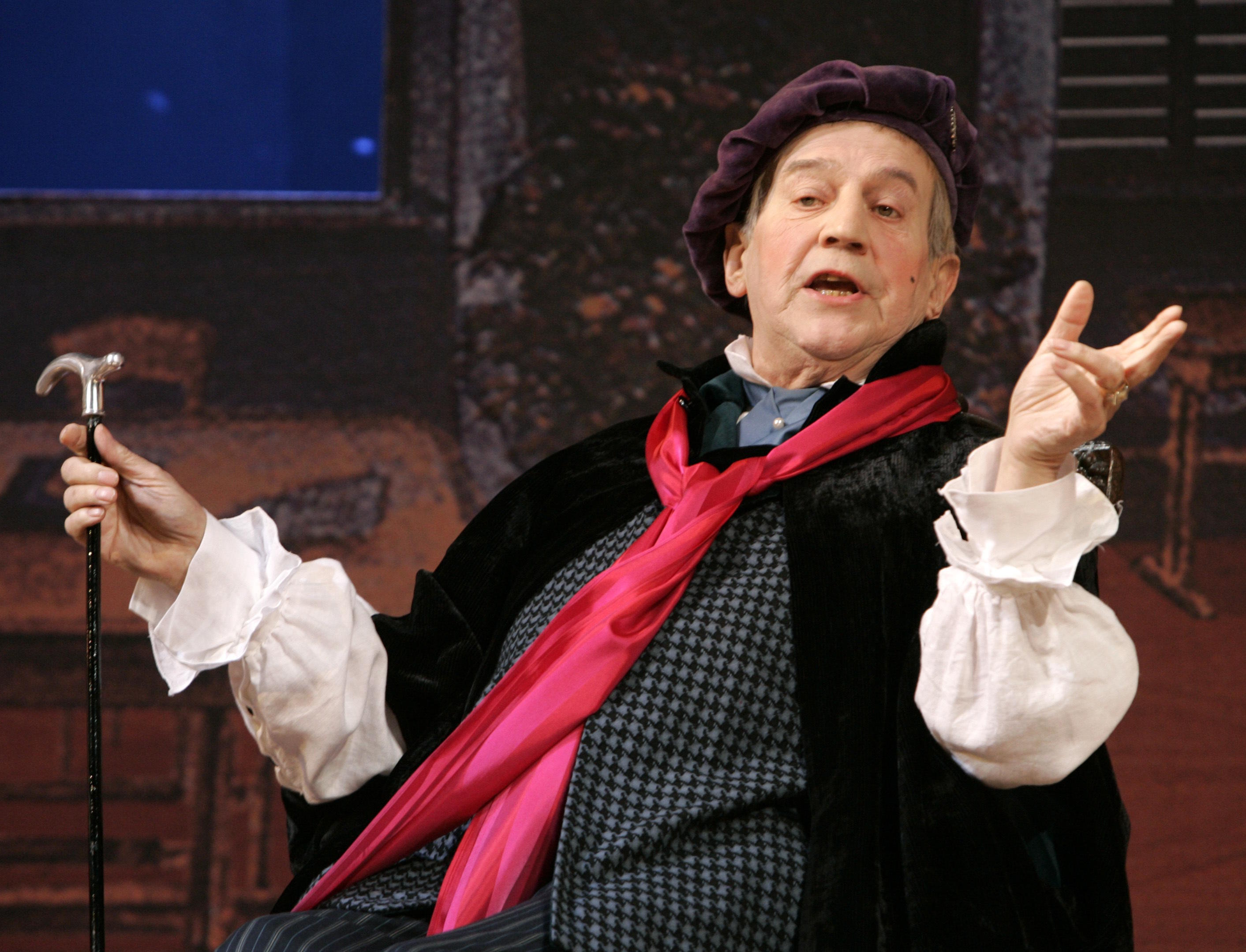Schenk lived in Austria, and his death was announced by the Vienna State Opera.
He created 31 productions there, starting with Janáek's "Jenfa" in 1964 and ending with Janáek's "The Cunning Little Vixen" in 2014. Many of his creations remain in use, including a 1979 version of Johann Strauss II's "Die Fledermaus" that was streamed around the world on New Year's Eve.
"Otto Schenk is an essential, unforgettable chapter in the history of our theater," Vienna State Opera Director Bogdan Roi said in a statement. "But he was also an artist who shaped the world of theater for half a century like few others. As sacred as the theater was to him, he approached the works naturally and fearlessly, drawing on an immense knowledge. An infinite love for the singers went hand in hand with hard, uncompromising rehearsal work and honesty. "
Schenk led 16 productions at New York's Metropolitan Opera, starting with Puccini's "Tosca" in 1968 and ending with Donizetti's "Don Pasquale" in 1996. His staging of Wagner's four-work "Der Ring des Nibelungen" premiered from 1986-89 and was shown in 20 full cycles from 1989 to 2009 and broadcast on public television in 1990. Schenk received a huge ovation when he took a curtain call after an April 18, 2009, performance of "Siegfried."
His romantic, realistic staging had set designer Günther Schneider-Siemssen create images of a river, forest and mountains dominated by greens and oranges, and costumes by Rolf Langenfass that evoked the original Ring of the 1876 Bayreuth Festival. It was in a way a response to Patrice Chéreau's centennial Ring at Bayreuth in 1976, set in an industrial age Ring and interpreted by some as Marxist.
"I wanted to tell a romantic old story, like starting with 'Once upon a time,'" Schenk said during a 1989 interview with The Associated Press. "All the secrets of Wagner's Ring should be guessed by the audience or found by the audience."
Born in Vienna, Schenk studied acting at Vienna's University of Music and Performing Arts, began directing in 1953 and led his first opera, Mozart's "Die Zauberflöte (The Magic Flute)," at Salzburg's State Theatre in 1957. He continued to act and performed 237 times at the Salzburg Festival from 1950-97, becoming head of drama there from 1986-88.
"The theater world has lost one of its greatest phenomena, an exceptional artist, a real legend," current Salzburg Festival artistic director Markus Hinterhäuser said in a statement.
At the Met, his stagings of Offenbach's "Les Contes d'Hoffmann (The Tales of Hoffmann)" and Wagner's "Tannhäuser" in 1977 earned rave reviews, and Met artistic director James Levine picked him to direct a new Ring Cycle plus Wagner's "Parsifal" in 1991 and "Die Meistersinger von Nürnberg" in 1993.
"At a time when many new productions of `Der Ring des Nibelungen' might be more aptly entitled `Der Ringling des Barnum und Bailey,' the Metropolitan Opera's staging of Wagner's epic has cast a vote for the notion that maybe, just maybe, the composer knew best," New York Times critic Donal Henahan wrote in 1989. "The Metropolitan's trend-bucking project has aroused widespread suspicion, even resentment. `Traditional,' `conventional,' `regressive' and `childishly representational' were some of the nicer epithets thrown about in lobbies and in print. ... Even granting the possibility that radical rethinking of Wagner's works might occasionally stimulate thought about their everyday relevance, a staging that pays honor to the original is a useful counterbalance."
Met presentations were long dominated by Schenk and Franco Zeffirelli, who had 11 stagings that premiered from 1964-98.
"Together with Franco Zeffirelli, Otto Schenk was one of the two directorial pillars of the Met for several decades," Met general manager Peter Gelb said, adding the Ring "captured the imagination of the nation when PBS scheduled it for national broadcast on four consecutive nights."
Schenk said he did not look for hidden meanings.
"Wagner in his life gave no indication on what the Ring meant," Schenk told the AP. "He didn't interpret."
